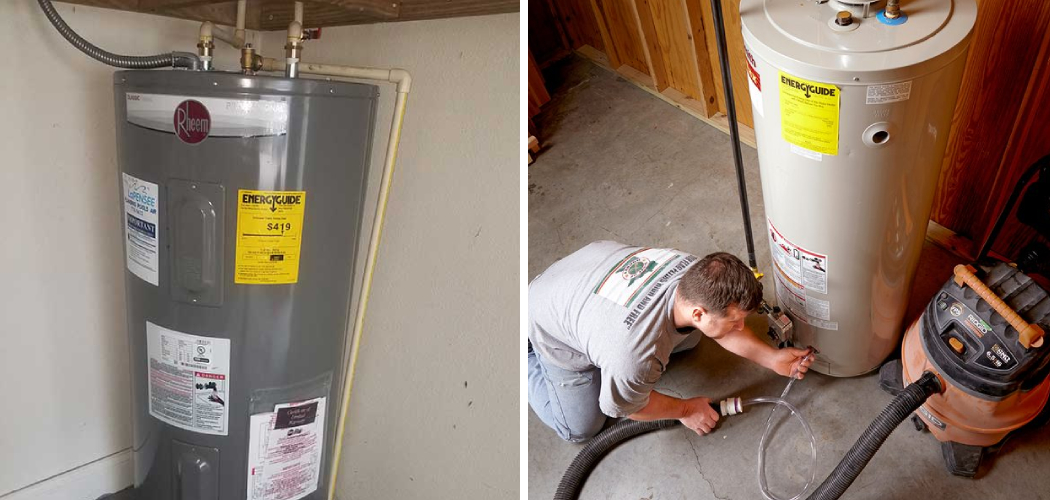Do you know the answer of “how do i stop my water heater from popping”? If your water heater has been popping every time you run a hot shower lately, then it is time to get to the root of the problem. Pops and bangs coming out of a water heater can be caused by several different things – from excess residue buildup over time to mineral deposits in hard-water pipes.
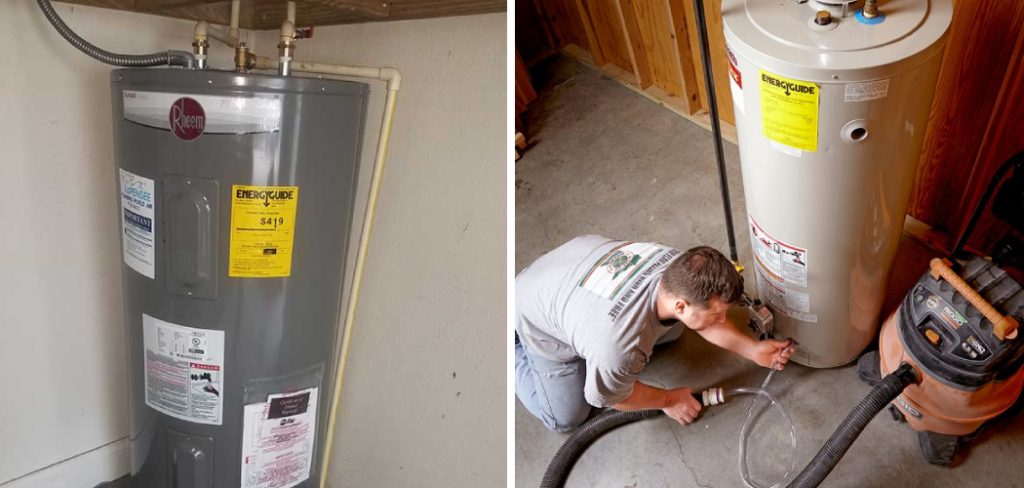
In this blog post, we will discuss how these issues can occur and provide some tips on how to prevent them from happening again in the future. So put an end to those disruptive pops today! If you’re living with a loud water heater, it can be incredibly irritating and hard to ignore. It might make your home feel more like a construction site than your cozy abode. Not to mention: the significant expense that comes along with trying to fix the issue!
Unfortunately, many homeowners don’t realize their water heaters are malfunctioning until they’re met with an unmistakable – and ear-splitting – POP! If this is something you’re facing in your own household, fear not – there are plenty of potential causes for a popping hot water heater and even more possibilities for resolving the problem.
Why Causes Water Heater Popping?
There are many reasons why your water heater may be popping. Such as:
1. Presence of Minerals in the Water
One of the most common causes of water heater popping is due to the presence of minerals in your home’s water supply. These minerals, such as calcium and magnesium, can accumulate on the heating elements inside the tank over time. When heated, these minerals can cause loud noises or popping sounds.
2. Blocked Ventilation Pipes
Blocked ventilation pipes can cause your water heater to overheat, resulting in popping noises. This is because the pipes are designed to release the heat and pressure of the tank. Also, make sure you replace any old and worn pipes that may be blocking the airflow.
3. High Temperature Setting
If you have your water heater set too high, the tank may overheat and result in popping sounds. To prevent this issue, make sure to adjust the temperature setting on your water heater to no more than 120 degrees Fahrenheit.
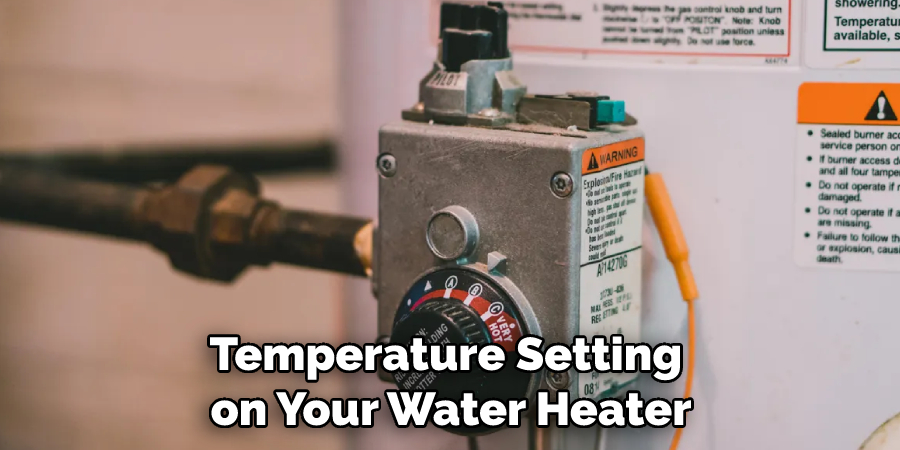
4. Sediment Buildup
Sediment buildup on the bottom of your water heater’s tank can also lead to popping noises. This is because the sediment acts as an insulator, preventing proper heat transfer and causing your water heater to overheat. To prevent this issue, flush out your tank at least twice a year.
12 Tips On ” How Do I Stop My Water Heater From Popping”
Now that you know what causes water heater popping, let’s take a look at how to stop it.
1. Flush Out Your Tank
To prevent the buildup of minerals and sediment on your tank’s heating element, flush out the tank once or twice a year. This will help remove any mineral deposits that could be causing your water heater to pop.
2. Lower the Temperature Setting
If you find that your water heater is still popping after flushing it out, then try lowering the temperature setting. A lower temperature setting can help reduce the risk of mineral buildup and prevent popping noises from occurring in your tank.
3. Inspect for Leaks
If you’re experiencing frequent popping noises, then it could be due to a leak in the tank. Inspect your water heater for any visible signs of leaks or damage and make sure that any repairs are done by a qualified professional.
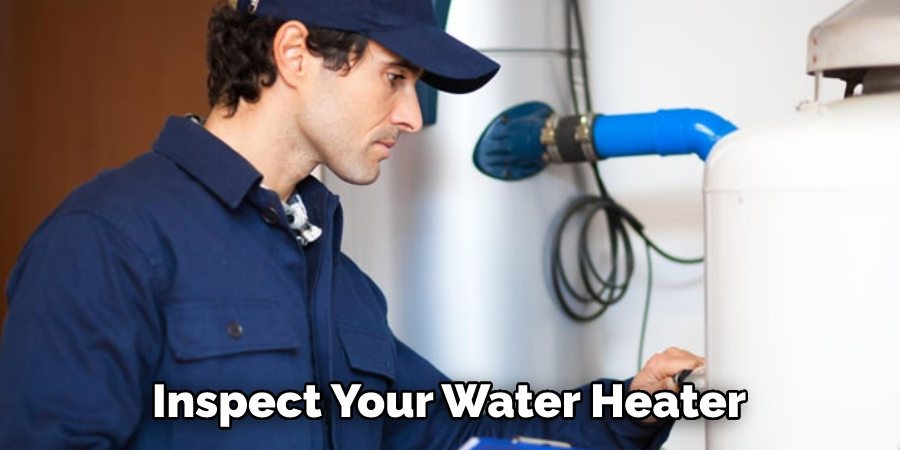
4. Check the Pressure Relief Valve
Your water heater’s pressure relief valve can become clogged or malfunctioning if it’s not regularly inspected and maintained. Make sure to check the valve periodically for any issues that could be causing your water heater to pop.
5. Check Anode Rod
An anode rod is designed to prevent corrosion of the tank’s lining, but if it becomes corroded itself, then this can lead to popping noises in your water heater. Make sure to check the anode rod every few months and replace it if necessary.
6. Check The Dip Tube
The dip tube is responsible for supplying cold water to the bottom of your tank and can become clogged with sediment or minerals over time. Inspect the dip tube for any blockages or damage and make sure to replace it if necessary.
7. Check Wiring
Poor wiring connections can lead to popping noises in your water heater. Make sure to check the wiring regularly for any problems that may be causing these noises. Also, make sure that all wiring meets the local safety standards.
8. Insulate The Tank
If your water heater is located in an area with a lot of temperature fluctuations, then insulating the tank can help reduce the risk of popping. This will also help keep the tank at a consistent temperature, which in turn can prevent any sudden pressure changes from occurring.
9. Install Water Softener
Hard water can lead to mineral buildup in your tank, which could be causing it to pop. To reduce the risk of this happening, consider installing a water softener system for your home, as this will help remove any minerals from your water supply.
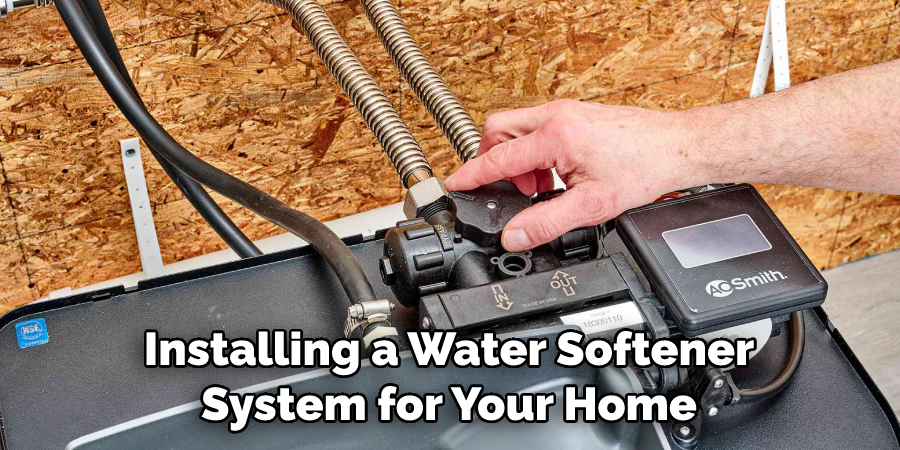
10. Install Expansion Tank
If you have a closed-loop system in your home, then it’s important to install an expansion tank. This can help prevent any sudden pressure changes from occurring, which in turn can reduce the risk of your water heater popping.
11. Clean The Heating Element
Your water heater’s heating element could be covered with mineral deposits, which can lead to popping noises. Make sure to clean the heating element every few months to help remove any buildup and prevent unnecessary popping.
12. Have A Professional Inspect Your System
If you’re still having trouble with your water heater’s popping noises, then it might be time to call in a professional. They can take a look at your system and provide any necessary repairs or maintenance that could help stop the popping noises.
By following these steps, you should be able to stop your water heater from popping and make sure that it’s running safely and efficiently. Remember, regular maintenance and inspection is key to ensuring that your water heater runs properly and lasts for a long time. If you’re having any issues with your water heater or have any concerns, then make sure to contact a qualified technician as soon as possible.
Frequently Asked Questions
What Precautions Can I Take To Avoid My Water Heater Popping?
One of the best ways to avoid your water heater from popping is by maintaining proper maintenance. You should regularly inspect the temperature and pressure valve, ensure that the anode rod is in good condition and properly installed, check for any sediment build up, and make sure all connections are secure. Additionally, you should consider installing a pressure relief valve to help reduce the risk of your heater from popping.
What Can I Do To Fix My Water Heater If It’s Already Popping?
If your water heater is already popping, it’s important to address the issue as soon as possible. The first step is to shut off the power or gas supply to the water heater. You should also open up a hot water tap in your house, which will allow steam and pressure to release safely. Once these steps are taken, you can inspect your anode rod and temperature and pressure valve for any issues. If the problem persists, it may be necessary to call a professional plumber to provide you with a more thorough inspection and repair.
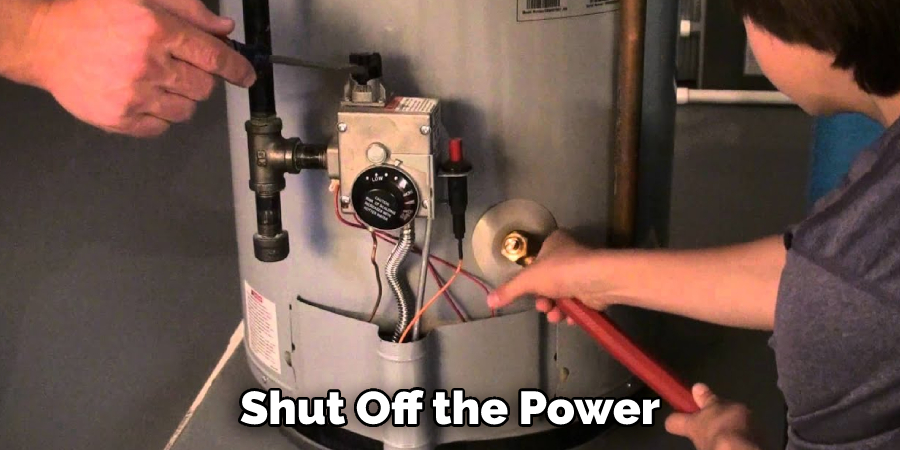
Can I Reset My Water Heater to Stop It From Popping?
In some cases, you may be able to reset your water heater to stop it from popping. This should only be done after the power or gas supply has been shut off and a hot water tap has been opened in the house. You’ll need to locate the reset button (usually near the temperature and pressure valve), press it, and wait for the water heater to reset. If this does not work, you should contact a professional plumber for further assistance. Also, make sure to follow any manufacturer instructions that may apply.
Conclusion
Now you know the answer of ” how do i stop my water heater from popping” . You should try to check the temperature of your water heater and adjust it accordingly. It’s also important to clean out mineral deposits from the tank, as these can cause problems with popping. In addition, if you have an older model, consider installing a new one that is designed to reduce popping.
Following these steps should help you prevent any further issue with your water heater. If you need additional help, it’s best to consult a qualified technician for guidance and assistance. With the right knowledge and care, you can keep your water heater running smoothly for years to come.

